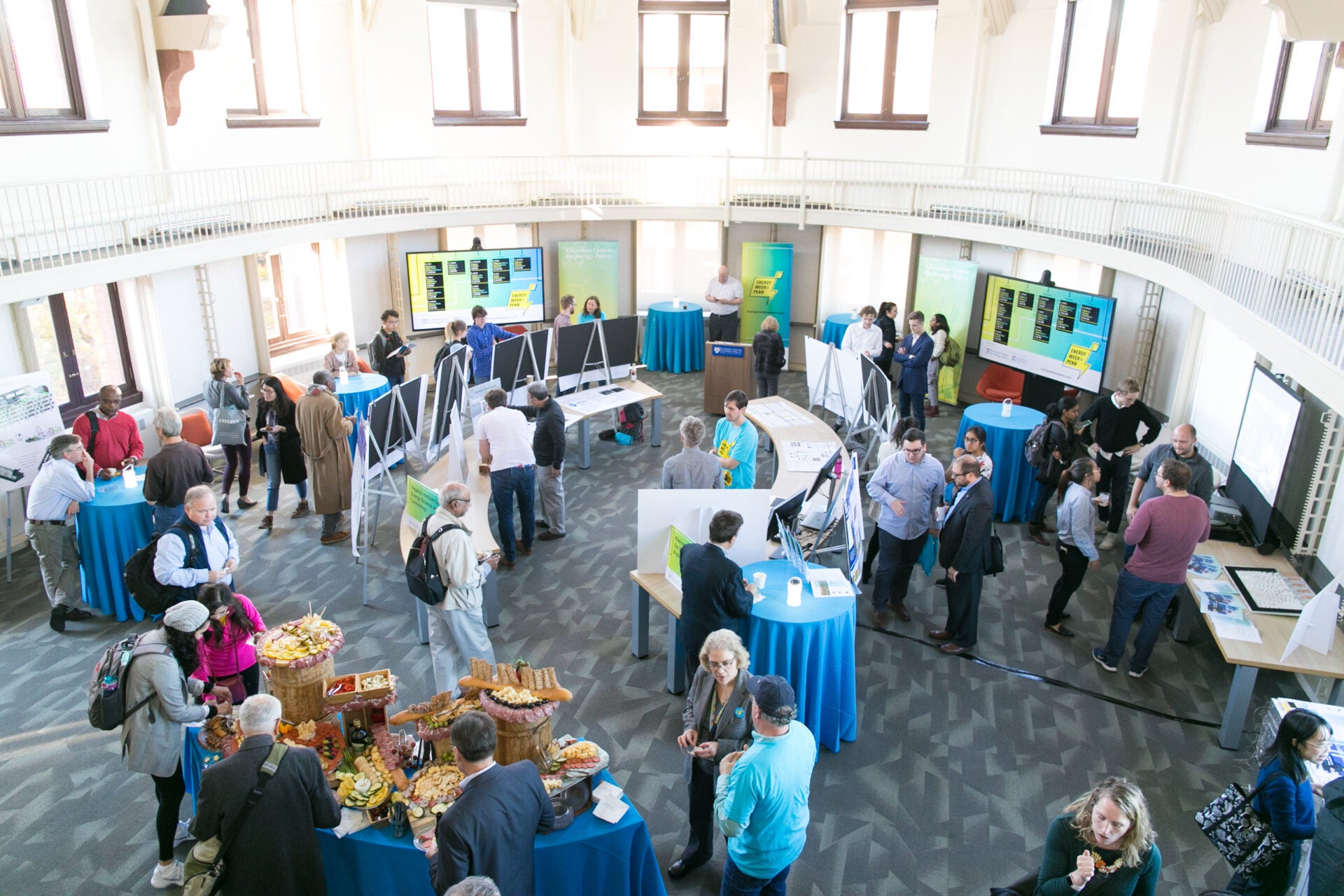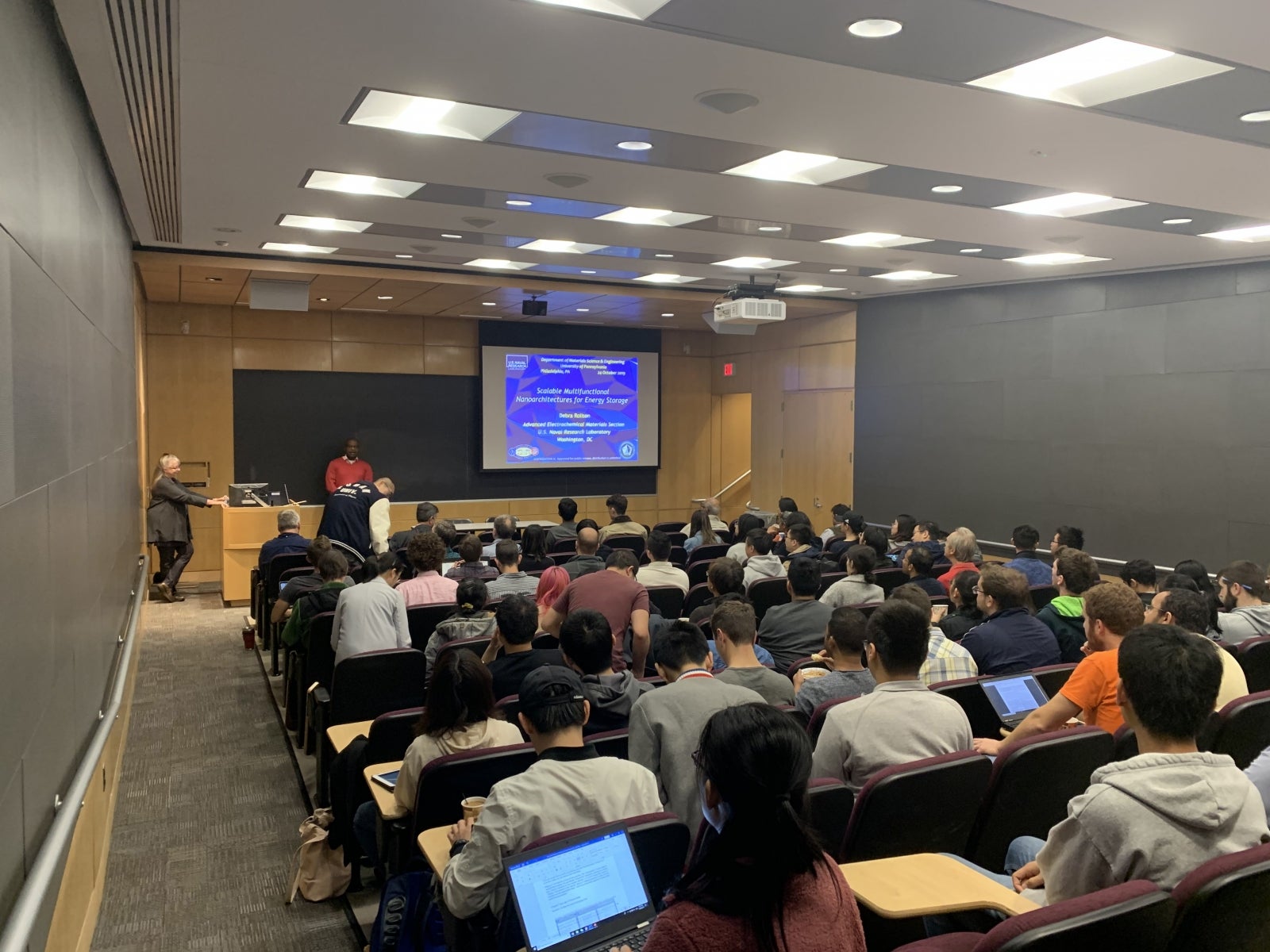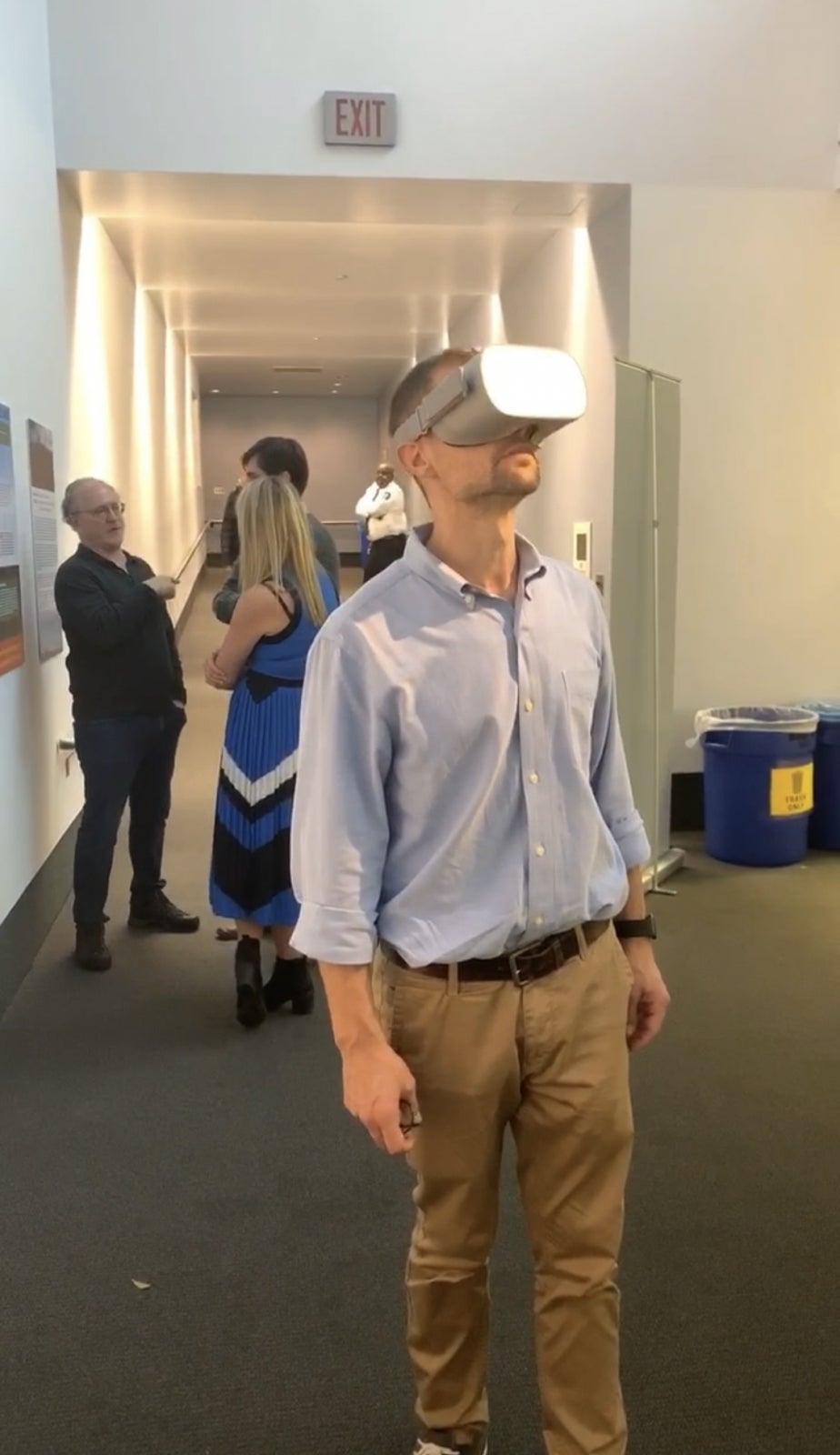
Energy Week: Connecting Energy Science with Energy Policy
Energy Week at Penn highlights the impressive energy research at Penn and demonstrates how the brightest minds can pull together to join science and policy to solve complex issues and navigate an uncertain future.
In late October, we hosted our first ever Energy Week at Penn. In collaboration with the Vagelos Institute for Energy Science and Technology (VIEST), the Kleinman Center for Energy Policy organized a week of energy events and publications that united energy researchers across six schools. From proposals to advance implementation of New York’s Climate Leadership and Community Protection Act, to exploring energy investment at the Wharton Energy Conference, the events covered a wide range of topics in the energy world and featured undergraduate students, graduate students, faculty, alumni, and staff who are working hard on these issues.

Armed with only high-school-level chemistry and physics, I can’t say I understood every minute of the energy seminars I attended during Energy Week, but I was able to walk away with a better understanding of energy science and a piqued curiosity about how we can use this science to guide energy policy.
For example, in Penn Engineering’s Materials Science and Engineering Seminar we heard from Debra Rolison, head of the Advanced Electrochemical Materials section at the U.S. Naval Research Laboratory about her research in zinc battery technology. Rolison is credited with the invention of a zinc-air rechargeable battery with “energy/power performance that meet[s] or exceed[s] state-of-the-art Li-ion batteries.” This could have big implications for renewable energy and energy storage.

In addition to introducing me to new concepts, many of these events also gave me a fuller understanding of today’s energy issues. For example, there is a lot of buzz about the energy impacts of bitcoin. At the Annenberg School exhibit, Bitcoin and Energy in Iceland, I saw a cryptocoin in action—submerged in a solution to keep it cool and muffle the sound. As it hummed along, I watched a ticker count the energy consumed. With VR technology and captivating sound and imagery, I was pulled into the complex story of the cryptocurrency boom in Iceland. I walked away with a better understanding of what highly intensive computing means to people and the energy landscape.
In addition to introducing me to new concepts, many of these events also gave me a fuller understanding of today’s energy issues. For example, there is a lot of buzz about the energy impacts of bitcoin. At the Annenberg School exhibit, Bitcoin and Energy in Iceland, I saw a cryptocoin in action—submerged in a solution to keep it cool and muffle the sound. As it hummed along, I watched a ticker count the energy consumed. With VR technology and captivating sound and imagery, I was pulled into the complex story of the cryptocurrency boom in Iceland. I walked away with a better understanding of what highly intensive computing means to people and the energy landscape.
And of course, the highlight of Energy Week was the 2019 Carnot Prize. This year’s Carnot Prize winner was Cheryl LaFleur, former commissioner of the Federal Energy Regulatory Commission (FERC). During her tenure at FERC, LaFleur oversaw many difficult decisions with big impacts for Americans. In her remarks, LaFleur discussed some of the challenging rulings on issues such as the Mercury and Air Toxics Standards, Clean Power Plan, and approval of new fossil fuel infrastructure like gas pipelines.
When making these tough decisions, LaFleur emphasized that science should drive decision-making, advocating for “fact-based approaches to political logjams.”
“Changing resources and technologies create winners and losers—companies, technologies, communities and regions. Given the high stakes for these parties, it can be difficult to discern the truth from the rhetoric,” reflected LaFleur. When it comes to energy, following the science is always a good bet.
The interdisciplinary nature of energy means that we can reach out and collaborate with partners across the University—from Wharton economists to bimolecular engineers. Together, the brightest minds can pull together science and policy to solve these complex issues and help us navigate an uncertain future.
See you at Energy Week 2020!
Mollie Simon
Senior Communications SpecialistMollie Simon is the senior communications specialist at the Kleinman Center. She manages the center’s social media accounts, drafts newsletters and announcements, writes and publishes content for our website, and regularly posts to our blog.

